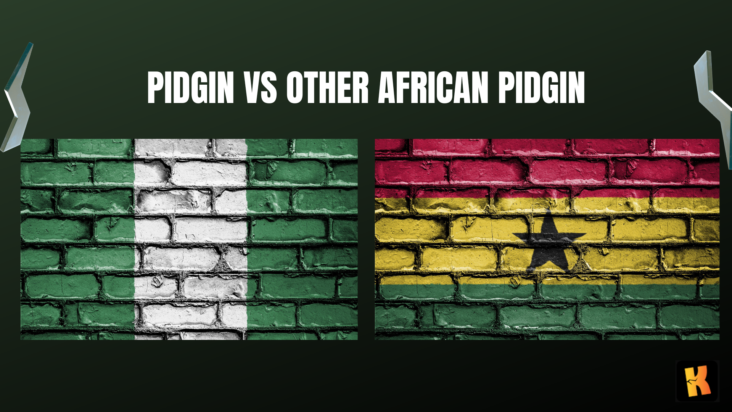Hey there! Let’s dive into the cool world of Pidgin English in Africa and see what makes them unique.
So, you know, Pidgin English is like the chill, simplified version of English that spread its vibes across Africa, especially Nigeria. But guess what? It’s not just Nigerian Pidgin English that’s rocking the scene; there are other Pidgin English varieties jamming in places like Ghana, Cameroon, Sierra Leone, and Liberia.
Similarities? Yep, they’ve got ’em:
– First off, they’re all groovin’ to the English beat.
– They keep it simple with a laid-back vocabulary and grammar.
– Pronunciation? No stress, they all keep it breezy.
– Plus, they’re all the cool cats in multilingual societies, acting as the go-to language.
But what sets them apart? Let’s spill the tea:
– Vocabulary: Each Pidgin English has its own swag when it comes to words. It’s all about where they’ve been and who they’ve hung out with. Nigerian Pidgin English, for example, has some Igbo vibes, while Ghanaian Pidgin English is more into Akan.
– Grammar: Different strokes for different folks, right? Nigerian Pidgin English vibes with “be” as a copula, while Ghanaian Pidgin English says “dey” is where it’s at.
– Pronunciation: Nigerian Pidgin English likes to roll with the “r” sound, but Ghanaian Pidgin English? Not so much.
Examples? Let’s compare some phrases:
| Nigerian Pidgin English | Ghanaian Pidgin English | English Translation |
| I dey go market. | Me dey go market. | I am going to the market. |
| How far? | Howdy? | How are you? |
| No wahala. | No problem. | No problem. |
| Chop small. | Eat small. | Eat a little bit. |
| Go and sit down. | Go sit down. | Go and sit down. |
Now, let’s give a shout-out to some other Pidgin English from different African hotspots:
– In Cameroon, they’re like, “I go chop now.” (I am going to eat now.)
– Ghana’s got that vibe, “Make I go.” (Let me go.)
– Sierra Leone’s in the groove with “Den dae rain.” (It is raining.)
– Liberia’s just chillin’ with “How you dae?” (How are you?)
Nigerian Pidgin English:
“How far, my guy?” (How are you?)
“I dey go market” (I am going to the market)
“No wahala” (No problem)
Ghanaian Pidgin English:
“How na, my bro?” (How are you?)
“Me dey go market” (I am going to the market)
Cameroonian Pidgin English:
“Na how, wetin?” (How are you?)
“I go market” (I am going to the market)
“No problem”
Sierra Leonean Krio:
“Ow na, my brudder?” (How are you?)
“Ah go market” (I am going to the market)
“No problem”
Bottom line? These Pidgin English flavors are as diverse as the continent itself. They’ve got their own stories, their own beats, but they’re all stars in their own right, making life cooler for millions of folks. Cheers to the African linguistic tapestry!




